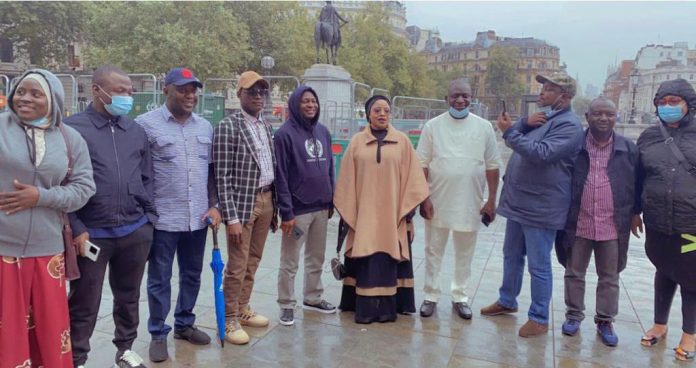As states plan their post-COVID-19 development strategy, Dr. Ramatu Tijjani Aliyu, Minister of State for the Federal Capital Territory, has advised countries to embrace a more aggressive and virile local government administration.
Local government, according to the minister, is critical in bridging the gap between policy measures and local realities for the coordination of actions in a post-COVID-19 development strategy. She spoke at a conference in the United Kingdom over the weekend.
This was contained in a statement signed by her Special Assistant on Media, Mr Austine Elemue, and made accessible to newsmen in Abuja.
In her paper titled “Towards a Sustainable Development for Local Government in a Post-Pandemic Nigeria: Lessons from the United Kingdom,” Aliyu, pointed that the global health crisis occasioned by the COVID-19 pandemic has pushed the envelope on ways of achieving political, economic and social responses to issues.
“The COVID-19 pandemic has clearly changed the way that people live, work, study and perform basic surviving tasks, such as shopping, communicating, using medical facilities or even dying.
“At the same time, institutions in general, and local governments in particular, face the most hard and painful test to their capacity to seek and achieve political, economic and social responses to this health crisis”, she stated.
While making reference to the Nigerian experience during the pandemic, Aliyu said though the local government acted as the local arm of the state in many aspects, however, managing the impact of COVID-19 in Nigeria faced some level of challenges due to epileptic health infrastructure, uneven state capacity for infection control, and endemic poverty.
According to her, “grave challenges exist in operating in many rural areas, where state presence is often highly variable. In such settings where access to basic, well-defined social services remains uneven at best, effectively tracing, testing, isolating, and monitoring quickly developing infections is likely to be a monumental undertaking indeed.
“Thus, local governance is likely to be especially important in bridging the gap between policy measures and local realities for the coordination of responses in a post COVID-19 development strategy.”
Drawing from her experience at the peak of impact of the COVID-19 pandemic in Abuja, where she took on a supervisory role over the local councils, Aliyu noted that local government may be better able to reach the public with various disease control and social security functions at times of unprecedented distress.
She, therefore, advised that local governments should be strengthened in their ability to respond to, learn from and mitigate the impact of potential crises.
The minister also called for a rejig of Local government operations in Nigeria where state governments have had great influence and control over local authorities to suit their interests and political agenda.
Aliyu also called for a clearly defined statutory provision for local government as obtainable with federal and state governments, expressing fear that there is a risk that the world could be yet more divided, conflictual and nationalistic after COVID-19.
For Nigeria to strengthen its present reforms at the local government administration Post-COVID 19, Aliyu said it was important to draw strength from the United Kingdom experience by clearly dividing functions between national and local governments, between different social sectors as well as various arms of local governments.

